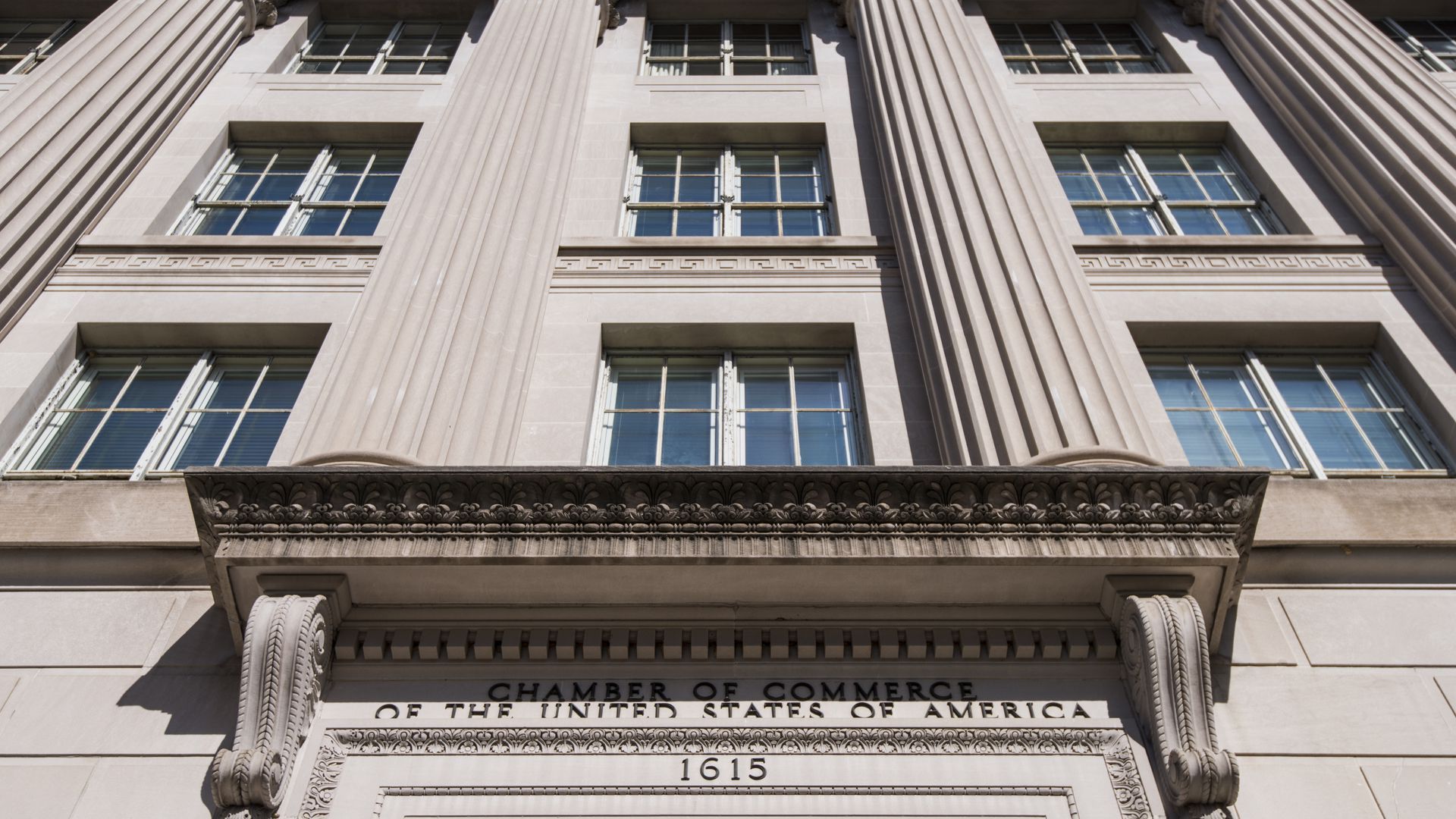| | | | | | | Presented By Hands Off My Rewards | | | | Axios Markets | | By Matt Phillips and Emily Peck · Sep 29, 2022 | | Things have been interesting in the old markets lately. ⚾️ 💰 Meanwhile, Yankees star slugger Aaron Judge hit his 61st home run of the season last night, tying the American League record — just as he's about to hit the market as a free agent. Let's do this. Today's newsletter is 1,105 words, 4.5 minutes. | | | | | | 1 big thing: Tilt toward fiscal dominance |  | | | Illustration: Annelise Capossela/Axios | | | | The turmoil in the British bond market is the backdrop for a battle between the nation's politicians and its central bank over who really runs the U.K. economy, Matt writes. Driving the news: With British government bond prices plunging and bond markets showing signs of growing dysfunction, the U.K. central bank announced an emergency plan yesterday to start buying as much as £65 billion in government bonds, known as gilts. Why it matters: The Bank of England's decision amounted to a sudden reversal of course — it had been trying to combat inflation by hiking rates. - The announcement, however, essentially meant the bank had promised to lower some long-term interest rates, in an effort to clean up a market mess created by the newly installed Conservative Party government of Prime Minister Liz Truss.
- Today Truss defended her tax cuts.
- The plans for tax cuts and large fiscal deficits — the opposite of what would be expected in an inflationary environment — created a panic in the market, sending the British pound to an all-time low and prompting a collapse in government bond prices. That's what forced the BoE's hand.
"The purpose of these purchases will be to restore orderly market conditions," the BoE said in the announcement. Between the lines: While couched in the technocratic language of central banking, the BoE's surprise announcement was actually part of a growing power struggle between the central bank and the government over how to handle the U.K.'s struggling economy. The big picture: For most of the last 30 years, separation of economic policy powers has become typical in most advanced, wealthy countries. - Governments — or as they're described by central bankers, "fiscal authorities" — control taxing, spending and borrowing decisions.
- The job of central banks is to ensure stable prices — which they do by raising or lowering interest rates, which slows down or speeds up economic activity.
- Under this system, central banks are supposed to have independence from the politicians running the country. That's because sometimes — for instance, when inflation is high — the bank has to do politically unpopular things, like raising rates, starting recessions and throwing people out of work.
Yes, but: Economic theorists have long warned that over time, governments can slowly establish influence over central banks, essentially by running up very large deficits, a phenomenon known as "fiscal dominance." - When a central bank is subject to fiscal dominance, giant amounts of government debt raise the risk that the markets become saturated with the debt, leaving the central bank supporting the market by purchasing government bonds. (The alternative is often a market meltdown.)
- As central bankers tend to be leery of financial crises, they typically grit their teeth and buy the bonds.
💭 Our thought bubble: Seems like a pretty apt description of what's gone on in the British bond market over the last few days. What we're watching: Signals about what the BoE will do at its next policy meeting on Nov. 3. |     | | | | | | 2. Charted: Gilt ridden |  Data: FactSet; Chart: Axios Visuals The Bank of England's efforts to support the British bond market worked yesterday, helping to push yields on U.K. 10-year gilts sharply lower, Matt writes. - Before that, yields had shot up by roughly a full percentage point in just a few days.
Yes, but: The Bank of England could be in for a difficult period, with inflation surging, the pound hovering near all-time lows — and now, the prospect of growing deficits making bond markets nervous about financing the government. |     | | | | | | 3. Catch up quick | | 🛑 Warren, other lawmakers ask FTC to block Amazon's deal for iRobot. (Axios) ⬆️ Porsche shares climb on debut as sports carmaker defies market. (FT) 😱 GOP leaders prepare for 2023 debt limit "nightmare." (Axios) |     | | | | | | A message from Hands Off My Rewards | | Congress, take your hands off my rewards | | |  | | | | Despite record profits, mega-retailers and merchant groups are trying to trick Congress into passing harmful credit card routing mandates that will end popular rewards programs. What you need to know: Lawmakers must oppose the Credit Card Competition Act. Learn more. | | | | | | 4. 😳 Why homes sales are cratering in one chart |  Data: Zillow; Table: Kavya Beheraj/Axios Does anybody want to buy a house? No seriously. Pending home sales, or contract signings to buy existing homes, fell again in August, according to data from the National Association of Realtors out yesterday, Emily writes. - It's the seventh month this year they've dropped, as rising mortgage rates put already high home prices out of reach for a lot of people.
Why it matters: A quick glance at that chart up there explains a lot. The minimum income needed to afford a typical house doubled since 2020 in several major metro areas, according to data from Zillow. - Prices for houses are, honestly, bananas compared to where they were just a couple of years ago.
- Pending home sales are at their lowest levels since 2011, with the exception of a brief period in 2020 when the country went into lockdown, Bloomberg noted.
|     | | |  | | | | If you like this newsletter, your friends may, too! Refer your friends and get free Axios swag when they sign up. | | | | | | | | 5. Chamber points to recent Supreme Court EPA ruling in CFPB suit |  | | | The Chamber of Commerce building in Washington, D.C. Photo: Bill Clark/Getty Images | | | | The Chamber of Commerce and some business groups filed a lawsuit yesterday against the Consumer Financial Protection Bureau over a new policy that targets discrimination in the financial sector, Emily writes. Why it matters: The lawsuit claims the agency is overstepping its authority, and is among the first to argue against a federal regulator by pointing to a recent Supreme Court ruling, West Virginia v. EPA. - In the EPA case, the Court's conservative majority sharply limited the authority of the environmental agency to regulate carbon emissions.
- The consumer agency's policy is also an example of how federal regulatory agencies have tried to more aggressively combat racial discrimination in the wake of the 2020 racial protests, the NYT notes.
Catch up quick: The CFPB announced its new "unfair discrimination" policy back in March, part of an update to its "exam manual," which helps banks understand regulations. - The gist is that the agency will consider whether financial institutions are discriminating against customers, intentionally or otherwise. "Consumers can be harmed regardless of whether it is intentional," the agency said in a release.
What they're saying: "The CFPB decided to act despite the fact that Congress did not give them the authority to act, particularly in light of the West Virginia EPA case," Tom Quaadman, an executive vice president at the Chamber, told Axios. - In its lawsuit, the Chamber emphasized that it is not in favor of discrimination, but that the agency doesn't have the explicit authority to police that kind of conduct.
- The other side: Consumer advocates tell Axios that the CFPB, under Dodd-Frank, is explicitly tasked with making sure financial institutions treat consumers fairly — that would include ensuring that they don't discriminate.
- "It just strikes me as so obvious that racial and gender discrimination is unfair," said Christopher Lewis Peterson, a law professor at the University of Utah, who worked at the agency during the Obama administration.
What to watch: The lawsuit also alleges that the CFPB's funding mechanism is unconstitutional. - Going after its funding could be an even bigger deal than the fight over the discrimination policy, said Peterson.
Go deeper. |     | | | | | | A message from Hands Off My Rewards | | Congress, take your hands off my rewards | | |  | | | | Despite record profits, mega-retailers and merchant groups are trying to trick Congress into passing harmful credit card routing mandates that will end popular rewards programs. What you need to know: Lawmakers must oppose the Credit Card Competition Act. Learn more. | | | | 1 thing Emily recommends: "Skandal!" a new Netflix documentary about the notorious accounting scandal at Wirecard, a once-beloved German fintech company revealed as a big con by the Financial Times. The doc has a little bit of everything for finance and journalism geeks like me: Reporters are bribed and followed, stock traders are conned and short-sellers gleeful. There's also a connection to Libyan militia agents and a charming but slippery executive who is possibly a Russian spy. If you watch it, let me know what you think. Or send in some documentary recommendations of your own by replying to this email. |  | | Why stop here? Let's go Pro. | | | | | | Axios thanks our partners for supporting our newsletters. If you're interested in advertising, learn more here.
Sponsorship has no influence on editorial content. Axios, 3100 Clarendon Blvd, Arlington VA 22201 | | | You received this email because you signed up for newsletters from Axios.
Change your preferences or unsubscribe here. | | | Was this email forwarded to you?
Sign up now to get Axios in your inbox. | | | | Follow Axios on social media:    | | | | | |












No comments:
Post a Comment